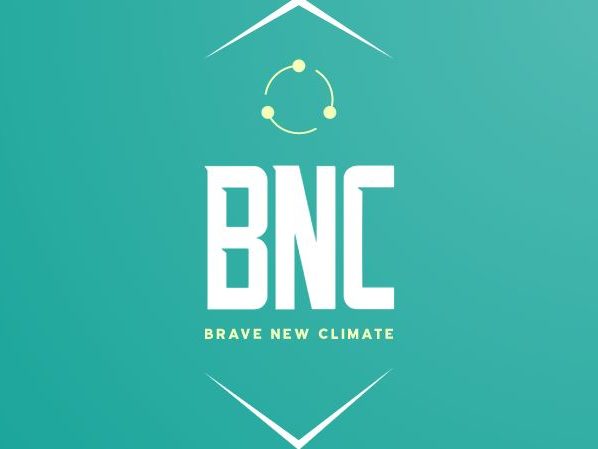Below is an update on the MIT competition that I highlighted in the last BNC post, including a plea for final action. There are only 3 days left to register your support, and in my opinion, this really counts. The winner will get in front of potential implementers at the Crowds & Climate Conference in November at MIT Boston, and will be heavily publicized through mainstream media.
Read Ron Gester’s summary of the current situation (below), and if you’re convinced, then help by doing some final networking. Voting ends this Saturday, August 31, at midnight EDT!
———-
Guest Post by Ron Gester M.D. The Treasurer and a co-founder of SCGI, Ron is a retired emergency physician and geologist, who is a passionate about solving the climate change problem.
For several weeks I (Ron Gester) have been encouraging everyone I can find to vote for Tom Blees’ Integral Fast Reactor (IFR) proposal at the MIT Climate CoLab competition. It has been a thought provoking exercise on many levels. As revealed in the below graph, our closest competitor is titled “EE based formalization.” It is a proposal to improve the energy efficiency of illegal substandard buildings in Montenegro and it is being promoted by United Nations Development Programme (UNDP).

We probably all agree that improving energy efficiency is a good idea. Indeed, their program might even prove to be a role model in some other parts of the world. However, as a plan for combating the global challenge of climate change, it is difficult to imagine that it would have any significant impact. So this provokes the question: “Why is it doing so well in this competition?”
There are numerous possible answers but it is hard to imagine that this is just a reflection of an overwhelming level of grass-roots enthusiasm for energy efficiency in the tiny European nation of Montenegro. Undoubtedly the UNDP would like to have its program get the blue ribbon and they must have an enormous international contact list for potential votes. They can probably craft some fairly influential appeals as well. Tough competition!
![]() Another possibility is that this has less to do with energy efficiency in Montenegro and more to do with the ongoing battle between those who support and those who oppose nuclear energy. The list of organizations opposing nuclear energy is long and effective. Some of them are sponsors of the competition and aware of the current race. They could easily stir up a lot of votes, and the Montenegro proposal, of all those currently running in the MIT Climate CoLab, has the best chance of toppling the IFR bid. Tough competition.
Another possibility is that this has less to do with energy efficiency in Montenegro and more to do with the ongoing battle between those who support and those who oppose nuclear energy. The list of organizations opposing nuclear energy is long and effective. Some of them are sponsors of the competition and aware of the current race. They could easily stir up a lot of votes, and the Montenegro proposal, of all those currently running in the MIT Climate CoLab, has the best chance of toppling the IFR bid. Tough competition.
However, it is the other side of the above question that bothers me more: “Why isn’t Tom’s proposal doing better in this competition?”
It is a proposal that would have a major impact in the fight against climate change, worldwide. It is a golden opportunity to spread information about not only the IFR but nuclear energy in general. MIT Climate CoLab is generating major publicity. The context created by the competition together with Tom’s readable proposal make the topic quite accessible and interesting; I have found it easy to get support even from people who are not supporters of nuclear energy. So it is a little astounding to see how ineffective the pro-nuclear side is in this competition.
Organizations ranging from the American Nuclear Society to national energy laboratories to university departments of nuclear engineering ought to be seizing this opportunity to promote nuclear energy. Engineering students and recent graduates should be launching social media campaigns. We should have several thousand votes by now. I understand that within the nuclear community there are many divisions over the “best reactor design.” I also understand there is reluctance to take the time to engage in such a messy thing as a popular vote. But if nuclear power advocates are holding back for these petty and somewhat arrogant reasons, it is truly short sighted. The nuclear industry, laboratories, young engineers, and the battle against climate change will suffer as a result.
I agree that that it is quite ridiculous to imagine that the plan for combating climate change will be influenced by an on line public competition. A popularity contest. Unfortunately, I believe that this is what is happening. The Climate CoLab competition is just one example. And the pro-nuclear side is not tough competition.
For people who are seeking to promote global-scale solutions, now is a great time to make yourself heard. Vote IFR, and let’s get the nuclear green voice heard.

4 replies on “MIT competition update – 3 days left, votes needed!”
Don’t worry, winners of each sub-contest will get to present at MIT, so this IFR proposal only needs to get enough votes than the fusion proposal which is in the same sub-contest of electric power generation. http://climatecolab.org/community/-/blogs/-10-000-grand-prize-at-nov-2013-conference
Looking forward to the presentation in November – that’s the important one to win :)
LikeLike
Voted for it. There is much more the IFR can do. Here is my presentation as part of a panel at GA Tech: https://smartech.gatech.edu/handle/1853/42061
LikeLike
[…] MIT competition update – 3 days left, votes needed! […]
LikeLike
[…] This is an update to this recent BNC post: MIT competition update – 3 days left, votes needed! […]
LikeLike